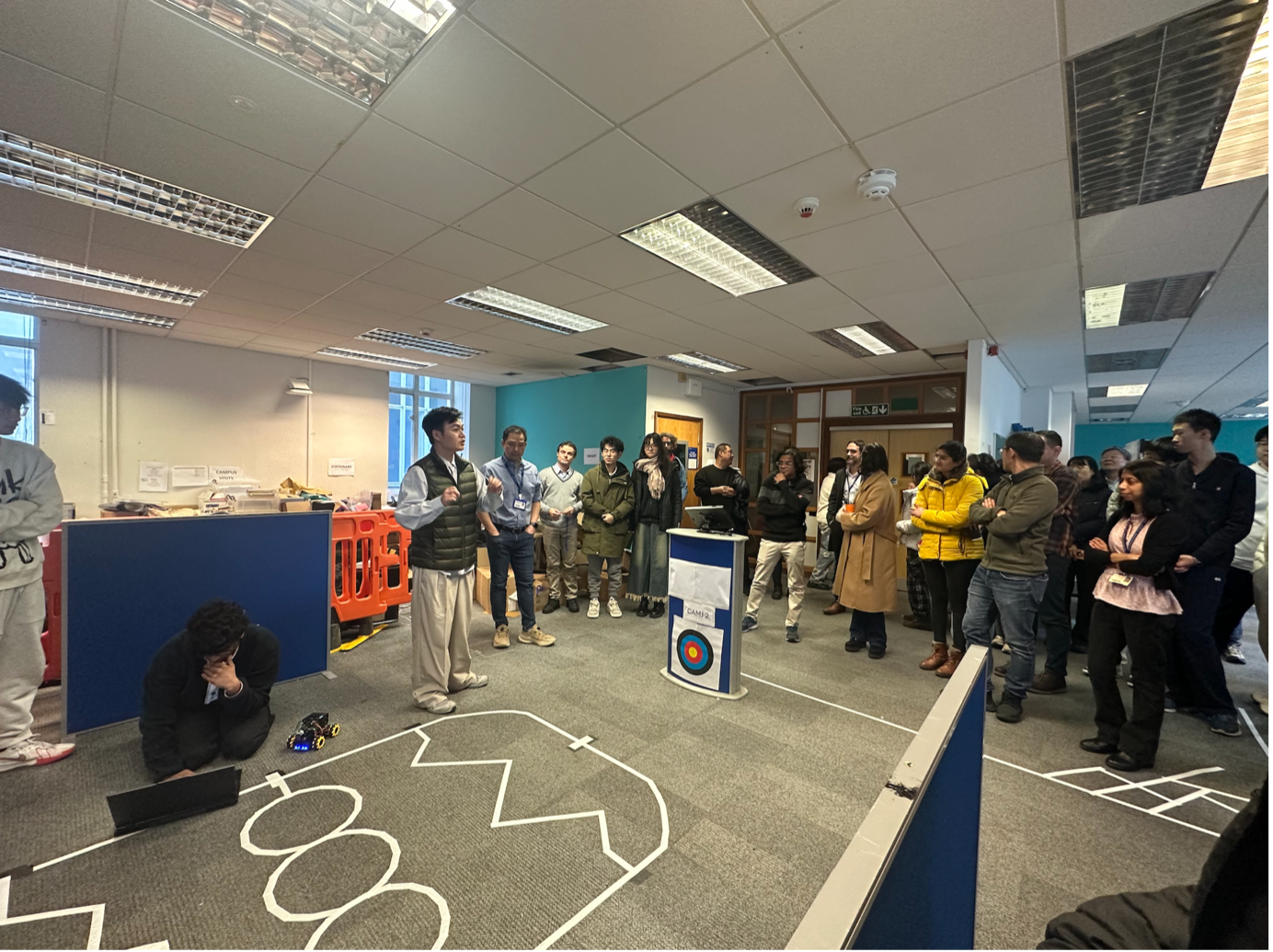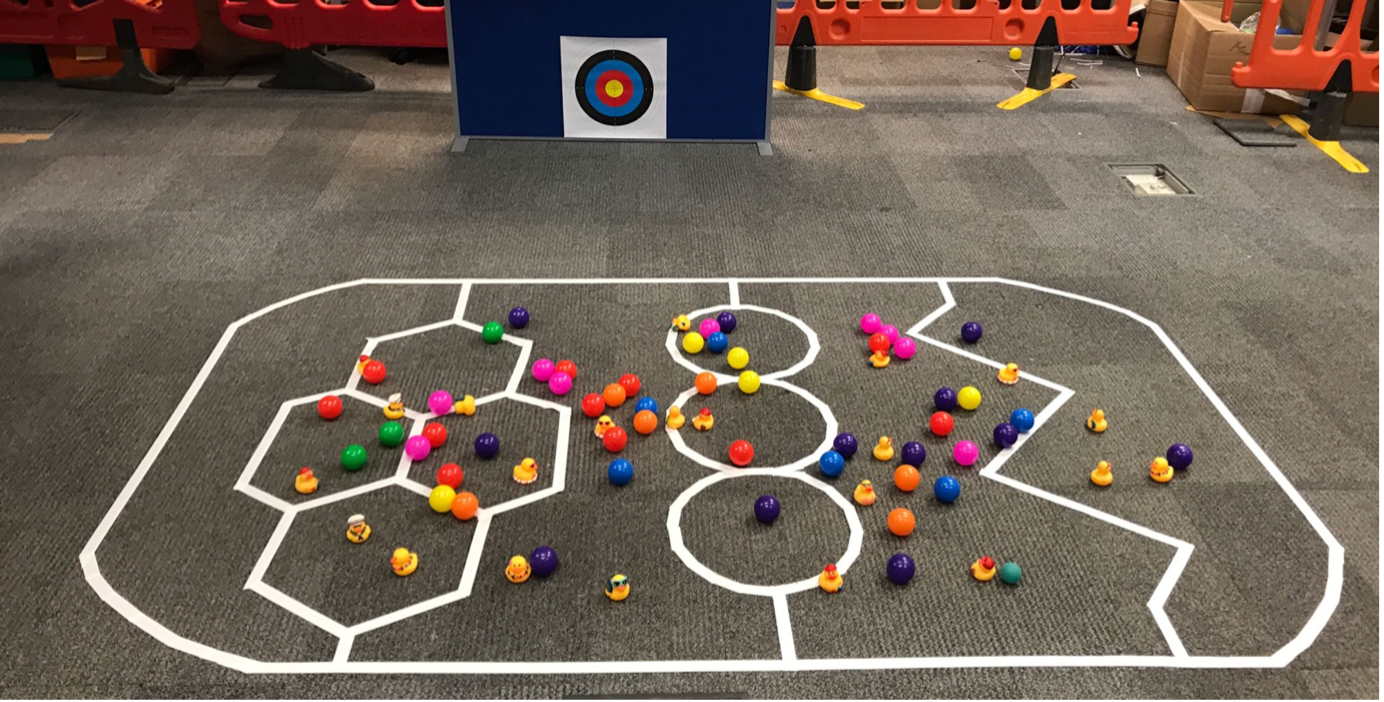2025 - Robotics-based Challenges
The JSIC Winter Hack Challenge Week 2025 has come to an exhilarating close, marking another milestone in fostering innovation, collaboration, and technical excellence. This event was a great opportunity to showcase the remote sharing platform, enabling students from two universities—Beijing University of Posts and Telecommunications (BUPT) and Queen Mary University of London (QMUL)—to work together on the same project, sparking innovation and collaboration.

This event was led by JSIC team members, including:
- Dr. Jonathan Loo
- Dr. Mannan Muhammad
- Dr. Anum Masood (Hainan School)
- Dr. Chao Liu
The Director of JSIC, Prof. Michael Chai, provided invaluable support throughout the event. We were also honoured to have an esteemed panel of judges, including:
- Prof. Steve Uhlig
- Prof. Yue Chen
- Dr. Dimitris Kalogiros
Additionally, faculty members played a crucial role in supporting this activity, providing guidance, mentorship, and technical assistance to ensure the success of the challenge.

A Week of Creativity and Technical Excellence
The Winter Hack Challenge 2025 took place from 10th February to 14th February 2025, bringing together 10 students from Beijing, 3 from Hainan, and 7 from London. They formed 4 teams of 5 members each to compete in a series of robotics-based challenges. Participants were tasked with designing autonomous robots capable of navigating a track, detecting and targeting objects, and recording successful hits.
The primary goal of the Winter Hack Challenge Week was to encourage innovation and interdisciplinary collaboration. Participants had the opportunity to work on projects spanning robotics, computer vision, and autonomous systems. Given the complexity of the challenges, Generative AI (GenAI) was encouraged as an integral part of development, providing students with an advanced toolkit to enhance problem-solving approaches.
Challenge Breakdown
Teams competed across three exciting challenges:
- Challenge 1: Targeted Object Detection
- Teams used a laser dot to hit coloured balls and ducks placed along a track.
- Each successful hit was documented with an image stored in local storage, including a visible laser dot, position label, and timestamp.
- Scoring: Balls counted as 1 hit, ducks as 2 hits.
- Challenge 2: Bullseye Precision
- Teams aimed to hit bullseye targets for the highest possible points.
- Each hit required a visible laser dot for at least 1 second and was recorded with relevant metadata.
- Challenge 3: Technical Track Navigation
- Teams attempted to complete as many technical track sections as possible.
- The difficulty of each section determined the points awarded.

Highlights of the Event
- Showcasing Remote Collaboration: The hackathon effectively demonstrated the potential of remote sharing platforms (https://gydata.thestudent.fun/), enabling students from BUPT and QMUL to work seamlessly across different locations.
- Workshops & Mentorship: Participants attended technical workshops on robotic vision, autonomous navigation, and AI-driven object detection.
- Intensive Hacking Sessions: Over the course of the week, teams worked rigorously to optimize their designs and strategies. Given the high difficulty level, students embraced collaboration, supporting and learning from one another.
- Encouraging GenAI Integration: Teams were encouraged to integrate Generative AI to enhance problem-solving capabilities, optimize algorithms, and improve precision in their autonomous systems.
- Project Showcase & Faculty Support: Teams presented their robots’ performances to a panel of judges comprising professors, researchers, and industry experts. Faculty members were instrumental in guiding students, offering valuable technical insights and continuous support throughout the competition.
A Collaborative and Engaging Experience
One of the most remarkable aspects of the Winter Hack Challenge 2025 was the level of engagement and teamwork demonstrated by the students. Despite the complexity of the challenges, participants actively helped one another, sharing knowledge and troubleshooting problems collaboratively. The event truly embodied the spirit of innovation, with students pushing their technical boundaries while fostering a strong sense of camaraderie.
Looking Ahead
The JSIC Winter Hack Challenge Week 2025 has once again demonstrated the power of collaboration, creativity, and technical expertise. As we look forward to future events, we encourage participants to continue refining their projects and exploring opportunities for further development.
A huge thank you to all students, mentors, and faculty staff who made this event a success! Stay tuned for upcoming hackathons, research initiatives, and collaborative opportunities at JSIC.
For more information about JSIC and future events, visit our official website: https://www.qmul.ac.uk/eecs/china/jsic/.